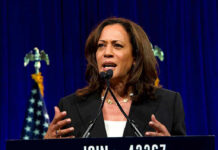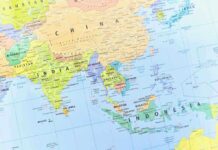China’s antitrust authorities have brought a $22.8 billion global port deal to a standstill, fueling international tensions and sparking a new chapter in geopolitical maneuvering.
Quick Takes
- The deal involves selling 43 global ports, including two in the Panama Canal, to a consortium led by BlackRock.
- China’s State Administration for Market Regulation (SAMR) initiated an antitrust investigation into the deal.
- Chinese President Xi Jinping expressed dissatisfaction over the sale occurring without Beijing’s consultation.
- The move reflects broader geopolitical tensions and China’s strategic management of foreign influence.
Deal Details and Chinese Intervention
The Chinese government has exerted pressure on CK Hutchison Holdings to halt a lucrative transaction with BlackRock, aimed at transferring ownership of port assets including two critical locations within the Panama Canal. This decision was driven by concerns over losing control and strategic oversight of these vital maritime points. China’s intervention underscores its intent to maintain influence over global logistics operations, as detailed by Chinese media’s coverage labeling the transaction as contrary to national interests.
China’s State Administration for Market Regulation (SAMR) has publicly committed to a detailed review of the deal, emphasizing a focus on preventing unfair market practices and protecting the public interest. An official statement from SAMR confirms, “We have taken note of this transaction and will review it in accordance with the law to ensure fair market competition and safeguard the public interest.”
Geopolitical Implications and Reactions
This halted transaction signals deeper geopolitical implications. Both the Belt and Road Initiative and China’s influence in the U.S.’s sphere are perceived as being affected, according to analysts familiar with the matter. Claus Soong noted, “The sale impacts the Belt and Road Initiative and weakens China’s influence in the U.S.’s backyard.” Furthermore, President Donald Trump celebrated the halted sale as a strategic victory, reinforcing U.S. interests over the Panama Canal.
Additionally, the development may call into question the independence of Hong Kong’s trade policies from China’s central government. Legal experts, however, suggest that if Panama supports the sale, Beijing’s legal recourse might be limited. “Beijing has few, if any, legal options to sabotage the deal,” remarked Louis-Vincent Gave, indicating potential limitations to China’s retaliatory strategies.
Future Prospects and Strategic Considerations
The blockage aligns with China’s broader strategy of ensuring that foreign business transactions maintain alignment with national interests, still compelling sources of tension within international trade and relations, particularly as concerns U.S.-China dynamics. Analysts anticipate that this may deter foreign engagements in Hong Kong, highlighting the nuanced distinctions—or lack thereof—between China’s private and public sectors.
The internal and external pressures continue to unfold, affecting CK Hutchison’s business operations as state-owned enterprises reportedly pause new dealings with the conglomerate, indicating a comprehensive approach by China to preserve its global positioning while fostering domestic stability. Investors and policymakers globally will need to closely monitor these developments, given their potential to reshape regional geopolitics and economic engagements.
Sources:
- https://www.datamarnews.com/noticias/china-pressures-company-over-sale-of-ports-in-panama-canal/
- https://nypost.com/2025/03/31/business/china-blocks-23b-sale-of-panama-canal-ports-to-blackrock/
- https://www.breitbart.com/asia/2025/04/01/china-blocks-panama-canal-port-sale-report-claims-xi-jinping-infuriated-by-deal-sought-without-his-approval/











